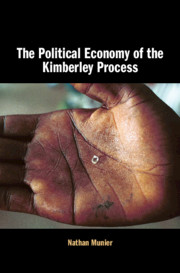
- Cited by 1
-
Cited byCrossref Citations
This Book has been cited by the following publications. This list is generated based on data provided by Crossref.
Munier, Nathan 2021. Non-Electoral Executive Turnover and Low-Capacity Democracy in Southern Africa. Africa Spectrum, Vol. 56, Issue. 2, p. 194.
- Publisher:
- Cambridge University Press
- Online publication date:
- August 2020
- Print publication year:
- 2020
- Online ISBN:
- 9781108884877


